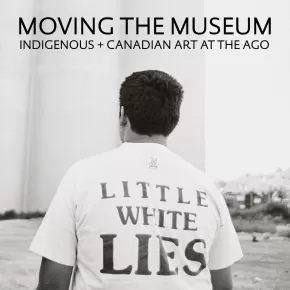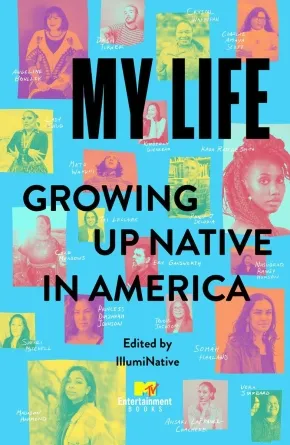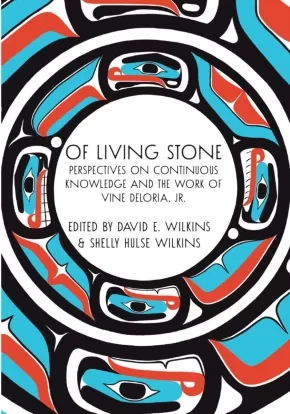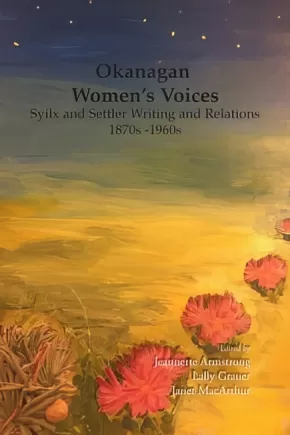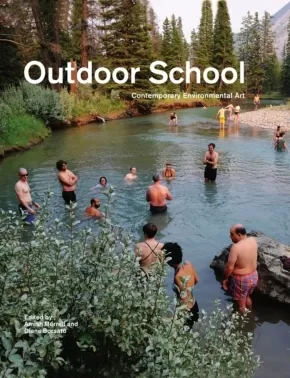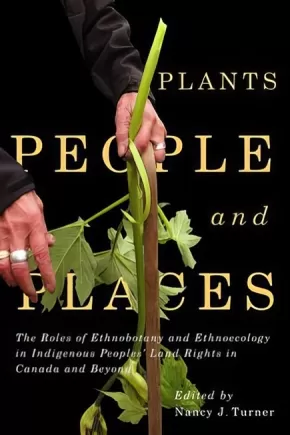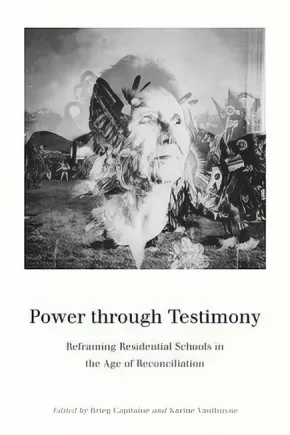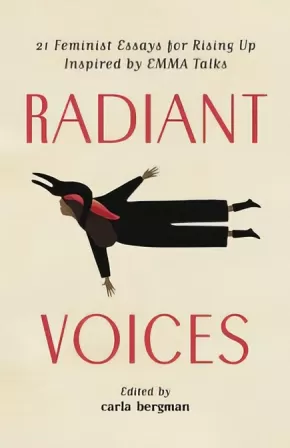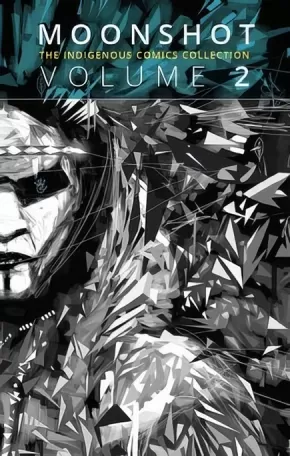
Various Indigenous Contributors
Books (11)
Movements and Moments
$34.95
Artists:
Format:
Hardcover
Text Content Territories:
Indigenous;
ISBN / Barcode: 9781770465619
Synopsis:
Synopsis:
An ambitious feminist anthology chronicling Indigenous rebellions around the world.
In 1930s Bolivia, self-described Anarchist Cholas form a libertarian trade union. In the Northern Highlands of Vietnam, the songs of one girl’s youth lead her to a life of activism. In the Philippines, female elders from Kalinga blaze a trail when pushed into impromptu protest. Equally striking accounts from Brazil, Chile, Ecuador, India, Nepal, Peru and Thailand weave a tapestry of trauma and triumph, shedding light on not-too-distant histories otherwise overlooked.
Indigenous Peoples all over the world have always had to stand their ground in the face of colonialism. While the details may differ, what these stories have in common is their commitment to resistance in a world that puts profit before respect, and western notions of progress before their own. Movements and Moments is an introductory glimpse into how Indigenous Peoples tell these stories in their own words. From Southeast Asia to South America, vibrant communities must grapple with colonial realities to assert ownership over their lands and traditions.
This project was undertaken in cooperation with the Goethe-Institut Indonesien in Jakarta. These stories were selected from an open call across 42 countries to spotlight feminist movements and advocacies in the Global South.
Reviews
"The artwork throughout is excellent... Taken together, these shorts carry a cumulative power, offering a heartening reminder of the strength and spirituality within resistance and a potent call to arms against injustice."—Publishers Weekly
“I am grateful for the heart that was poured into these comics, and even more so for the bravery of the people whose stories they tell. This book made me feel a little stronger. It helped me remember some things I had begun to forget.”—Eleanor Davis, The Hard tomorrow
“Movements and Moments is an important collection of unique, vibrant voices that together sing in unison the stories of identity, liberation, determination, and resilience. To finally gain the perspectives of Indigenous women from South America, Latin America, Asia, and Oceania is a powerful, uplifting celebration of communities who have been underrepresented and overlooked for far too long.”—Rina Ayuyang, Blame This on the Boogie
"This anthology is an excellent, engaging historical resource."—ALA Booklist
Educator Information
ABOUT THE PROJECT as shared here: https://www.goethe.de/ins/id/en/kul/kue/mmo.html
"Goethe-Institut's project “Movements and Moments” sheds light on Indigenous feminist activisms from the Global South in the form of comics.
The narratives of feminism are still written from a predominantly white, western perspective. While feminist claims and positions from the Global North are, up to this day, sidelined in a patriarchal mainstream, the same holds true to a much broader extent for feminist movements from the Global South. Little information about these movements and their activists is accessible in large knowledge databases such as Wikipedia, and even in the respective native regions of these feminist activists their achievements are often not archived because resources are too scarce or their demands are not thematized.
Initiated by Goethe-Institut Jakarta, the project “Movements and Moments – Feminist Generations” aims to make visible these hidden biographies and activisms by relating their stories in the highly accessible format of comics. By emphasizing an indigenous feminist perspective, which is often linked to decolonial struggles and emancipatory approaches to sustainability, we wish to shed light on one of the most marginalized, underexposed aspects of feminist protests. On the other hand, this project wants to inquire how these often overlooked struggles might be role models for feminist movements worldwide. By publishing these stories from different continents and bringing them into dialogue with each other, we hope to spark interest in archiving and mediating non-Western feminist endeavors.
In 2019 we launched an open call and received an overwhelming 218 applications from 352 teams and solo artists originating from 42 countries. The jury members—Aua Mendes (Indigenous trans feminist artist from Brazil), Johann Ulrich (German comic publisher), Maya (Goethe-Institut Indonesien), Sonja Eismann (publisher of German feminist periodical Missy Magazine), and Urvashi Butalia (head of Indian feminist publisher Zubaan Books)—selected 16 stories from 14 countries that conveyed major narratives on ecological activism, the fight for education, and the struggle for the rights of LGBTIQA+ people. Two accomplished comic book artists, Amruta Patil from India and Nacha Vollenweider from Argentina, served as the groups’ mentors and accompanied and guided the authors during the process. Some stories will be published in German and English in 2022 through appointed publishers while other stories will be accessible on this website in English and the authors’ native languages."
Additional Information
264 pages | 7.35" x 9.75" | Hardcover
Moving the Museum: Indigenous + Canadian Art at the AGO
$45.00
Artists:
Editors:
Format:
Hardcover
Text Content Territories:
Indigenous Canadian;
Grade Levels: 12; University/College;
ISBN / Barcode: 9781773102023
Synopsis:
Synopsis:
Moving the Museum documents the reopening of the J.S. McLean Centre for Indigenous & Canadian Art with a renewed focus on the AGO’s Indigenous art collection. The volume reflects the nation-to-nation treaty relationship that is the foundation of Canada, asking questions, discovering truths, and leading conversations that address the weight of history and colonialism.
Lavishly illustrated with more than 100 reproductions, Moving the Museum: Indigenous + Canadian Art at the AGO features the work of First Nations artists — including Carl Beam, Rebecca Belmore, and Kent Monkman — along with work by Inuit artists like Shuvinai Ashoona and Annie Pootoogook. Canadian artists include Lawren Harris, Kazuo Nakamura, Joyce Wieland, and many others. Drawing from stories about our origins and identities, the featured artists and essayists invite readers to engage with issues of land, water, transformation, and sovereignty and to contemplate the historic and future representation of Indigenous and Canadian art in museums.
Educator Information
Celebrates the renewed focus on Indigenous art at the J.S. McLean Centre for Indigenous & Canadian Art.
Features essays on the curatorial decisions made in redesigning the gallery, as well as pieces on individual artis and the history of Canadian, Indigenous, and Black art at the AGO.
Over 100 images, including art by Karoo Ashevak, June Clark, and Rebecca Belmore.
Additional Information
270 pages | 10.25" x 10.25" | Hardcover
My Life: Growing Up Native in America
$38.99
Editors:
● IllumiNative (Indigenous;)
Format:
Hardcover
Text Content Territories:
Indigenous American; Native American;
ISBN / Barcode: 9781668021705
Synopsis:
Synopsis:
A moving collection of twenty powerful essays, poems, and more that capture and celebrate the modern Native American experience, featuring entries by Angeline Boulley, Madison Hammond, Kara Roselle Smith, and many more.
With heart, pathos, humor, and insight, twenty renowned writers, performers, athletes, and activists explore what it means to be Native American today. Through a series of essays and poems, these luminaries give voice to their individual experiences while shedding light on the depth and complexity of modern Native American identity, resiliency, and joy.
The topics are as fascinating and diverse as the creators. From Mato Wayuhi, award-winning composer of Reservation Dogs, honoring a friend who believed in his talent to New York Times bestselling author Angeline Boulley exploring what it means to feel Native enough, these entries are not only an exploration of community, they are also a call for a more just and equitable world, and a road map toward a brighter future.
Edited by IllumiNative, an organization dedicated to amplifying contemporary Native voices, My Life: Growing Up Native in America features contributions from Angeline Boulley, Philip J. Deloria, Eric Gansworth, Kimberly Guerrero, Somah Haaland, Madison Hammond, Nasugraq Rainey Hopson, Trudie Jackson, Princess Daazhraii Johnson, Lady Shug, Ahsaki Baa LaFrance-Chachere, Tai Leclaire, Cece Meadows, Sherri Mitchell, Charlie Amaya Scott, Kara Roselle Smith, Vera Starbard, Dash Turner, Crystal Wahpepah, and Mato Wayuhi.
Additional Information
224 pages | 5.50" x 8.37" | 16-pg b&w insert | Hardcover
Native Minds Rising: Exploring Transformative Indigenous Education
$30.00
Editors:
Format:
Paperback
Text Content Territories:
Indigenous American; Indigenous Canadian;
ISBN / Barcode: 9781926476322
Synopsis:
Synopsis:
The principles of empowerment through a new expression of Indigenous education are facilitated by both Indigenous and non-Indigenous people recognizing the hidden oppression and uneven levels of power and privilege which are the legacy of colonialism. The stories of the oppressive history of America must be heard. The historic and contemporary forms of trauma, grief and loss of Indigenous people must be acknowledged. There must be recognition that the effects of marginalization and racism are ongoing.
To address these effects, a contemporary Indigenous education theory must validate the inherent strength of Indian people in their resiliency and instinct for survival. It must allow for trust in Indigenous Peoples ability to develop a new expression of education over time. There must be a deep and long-term commitment to create and enact a transformative vision of the role a contemporary expression of Indigenous education can play. Such a vision must be built upon mutual respect and shared power for all participants. In many ways, this movement toward defining a new vision for Indigenous education has already begun. What is most important in these beginning stages is listening to the voices of Indian people, validating their positions and understanding their need for empowerment as they strive to create a new and transformative vision for Indigenous education in the 21st century.
Native Minds Rising presents the research and stories of a new group of Indigenous scholars and practitioners who are researching or participating in the development of Indigenous-based research while working in Indigenous communities.
Reviews
"At last, a valuable and insightful work that moves beyond narrow, descriptive analyses of Indigenous education pathologies to repositioning the transforming potential of Indigenous-thinking, critical awareness and self-development." — Graham Hingangaroa Smith
"Native Minds Rising is a gift of power, wisdom, relevance and urgency. Indigenous ways of learning, knowing and living are vital pathways to a healthy future." — Cheryl Charles
"I am deeply captured by the emergence of Indigenous scholars in this volume whose writing represents a 'new song' in the continued transformation of Indigenous education." — Herman Michell, PhD, Indigenous Educator & Consultant, Prince Albert, Saskatchewan Canada
Educator Information
Table of Contents
FIGURES
TABLES
Cover Symbolism
Acknowledgements
A Note on Terminology
Table of Contents
PREFACE
Native Minds Rising: Exploring Transformative Education
by Gregory A. Cajete
CHAPTER 1
Freedom Gives Birth to Beauty: A Diné Experiment in Education Liberation
Lyla June Johnston
CHAPTER 2
Indigenous Peoples’ Transformative Research Framework
Michele A. Sam
CHAPTER 3
Indigenous Arts as the Conduit to Cultural Learning
heather ahtone
CHAPTER 4
Is Decolonizing Education Possible? Revisiting the Hegemonic Making of Compulsory Schooling and its Deculturalizing Effect on Chicanx/Indigenous People
Darlene Lane Santa Cruz
CHAPTER 5
Core Teachings of Jack D. Forbes: Transformative Educational Foundations and Visions
Joshua Frank Cárdenas
CHAPTER 6
Systemic Challenges to Native American Participation in Higher Education: Synthesis of the Literature
Linda Tello
CHAPTER 7
The Economics of Generosity and Ghost Dance of Indigenous Education
Arlo Starr
CHAPTER 8
Aitakuwahi: An Indigenous Scientist’s Pathway for Regeneration and Decolonization
Dominique M. David-Chávez
CHAPTER 9
Transformative Visioning: An Indigenous Process for Coming to Know
Gregory Cajete
About the Authors
Additional Information
194 pages | 6.00" x 9.00"
Never Whistle at Night: An Indigenous Dark Fiction Anthology: Are You Ready to Be Un-Settled?
$25.00
Editors:
Format:
Paperback
Text Content Territories:
Indigenous American; Indigenous Canadian;
Reading Level: N/A
ISBN / Barcode: 9781039003798
Synopsis:
Synopsis:
A bold, clever, and sublimely sinister collection that dares to ask the question: “Are you ready to be un-settled?” Featuring stories by:
Norris Black • Amber Blaeser-Wardzala • Phoenix Boudreau • Cherie Dimaline • Carson Faust • Kelli Jo Ford • Kate Hart • Shane Hawk • Brandon Hobson • Darcie Little Badger • Conley Lyons • Nick Medina • Tiffany Morris • Tommy Orange • Mona Susan Power • Marcie R. Rendon • Waubgeshig Rice • Rebecca Roanhorse • Andrea L. Rogers • Morgan Talty • D.H. Trujillo • Theodore C. Van Alst Jr. • Richard Van Camp • David Heska Wanbli Weiden • Royce Young Wolf • Mathilda Zeller
Many Indigenous people believe that one should never whistle at night. This belief takes many forms: for instance, Native Hawaiians believe it summons the Hukai’po, the spirits of ancient warriors, and Native Mexicans say it calls Lechuza, a witch that can transform into an owl. But what all these legends hold in common is the certainty that whistling at night can cause evil spirits to appear—and even follow you home.
These wholly original and shiver-inducing tales introduce readers to ghosts, curses, hauntings, monstrous creatures, complex family legacies, desperate deeds, and chilling acts of revenge. Introduced and contextualized by bestselling author Stephen Graham Jones, these stories are a celebration of Indigenous peoples’ survival and imagination, and a glorious reveling in all the things an ill-advised whistle might summon.
Reviews
“All combined, these powerful pages use fantastical elements to create very human characters who suffer very real horrors, like oppression, poverty, abuse, mental illness and the erasure of long-existing cultures and traditions. This volume is a must for any library collection and will be devoured by speculative fiction fans who enjoy a sprinkle of social commentary within their scary books.” —Booklist
“Never Whistle at Night is all I’ve ever wanted in an Indigenous horror anthology. From doubles, to Empty People, to story theft, to zombies, this anthology explores the horror that lives in colonial violence, generational love and trauma, and our everyday lives. It’s a joy to see such a diverse representation of experience, background, and style in this carefully curated and terrifying collection.”—Jessica Johns, author of Bad Cree
“Story to story, Never Whistle at Night never failed to surprise, delight, and shock me. I’m a big fan of stories that make you feel like you’re standing at the edge of a cliff with a stranger’s fingers on the tip of your spine—and this anthology has that ungoverned, go-for-broke aesthetic that I love.”—Nick Cutter, author of Little Heaven
“An extensive collection of Indigenous stories ranging from the humorous to the terrifying, this anthology is a must-read for everyone. Your new favorite author is absolutely in this book.”—Amina Akhtar, author of Kismet
“Melodious, haunting, and visceral, Never Whistle at Night enchants from the very start with fiery confidence and merciless ghosts. These are stories that dig their fingers inside you and carve something truly special. An absolute must-read.”—Hailey Piper, Bram Stoker Award-winning author of Queen of Teeth
"Can you draw power from the spirit of a story? If the twenty-six tales in the essential Never Whistle at Night anthology are any indication, the answer is an emphatic yes. The title itself provides its own warning, but I'll go one step further: Never read this collection of spine-chilling stories alone at night. You just might not make it to morning."—Clay McLeod Chapman, author of Ghost Eaters
Additional Information
416 pages | 5.19" x 8.00" | Paperback
Of Living Stone: Perspectives on Continuous Knowledge and the Work of Vine Deloria, Jr.
$43.95
Editors:
Format:
Paperback
Text Content Territories:
Indigenous American; Native American; Sioux; Lakota;
Reading Level: N/A
ISBN / Barcode: 9781682754665
Synopsis:
Synopsis:
Of Living Stone: Perspectives on Continuous Knowledge and the Work of Vine Deloria, Jr. is a collection of new essays on the legacy of Vine Deloria, Jr., one of the most influential thinkers of our time. This insightful collection features more than thirty original pieces, bringing together Tribal leaders, artists, scientists, activists, scholars, legal experts, and humorists. A group of French scholars offers surprising perspectives on Deloria’s continuing global influence. Readers will find thoughtful and creative views on his wide-ranging and world-changing body of work. Some build upon his ideas while others offer important criticisms. In addition to its content, this volume is unique in that it was designed to center the traditional exercise of continuous knowledge whereby information is routinely shared, considered, and pragmatically adapted as it flows between generations. In this way, people, ideas and traditions remain alive and relevant—not set in stone —as the past is honored by those living in the present as they prepare for the future.
The book includes contributions from a number of remarkable individuals, including:
- Climate expert Margaret Redsteer (Crow)
- Melanie Yazzie (Diné), host of The Red Power Hour podcast
- Cheryl Crazy Bull (Sicangu Lakota), president of the American Indian College Fund
- Activists Faith Spotted Eagle (Yankton Dakota) and Lauren Schad (Cheyenne River Lakota)
- Writer and producer Migizi Pensoneau (Ponca/Ojibwe)
- Environmental scientists Kyle Whyte (Citizen Potawatomi) and Ryan Emanuel (Lumbee)
- Experts on Tribal Governance Deron Marquez (Yuhaaviatam of San Manuel), Frank Ettawageshik (Little Traverse Bay), Norbert Hill (Oneida), Megan Hill (Oneida), and Marty Case.
- Artists Cannupa Hanska Luger (MHA-Three Affiliated Tribes) and James Johnson (Tlingit)
- Legal Scholars Sarah Deer (Muscogee), Rebecca Tsosie (Yaqui descent), and Gabe Galanda (Round Valley)
- Archaeologist Paulette Steeves (Cree-Metis)
- Scholars of Indigenous Traditions Noenoe Silva (Kānaka Maoli), Natalie Avalos (Chicana of Mexican Indigenous descent), Tom Holm (Cherokee), and Greg Cajete (Tewa-Santa Clara Pueblo).
Time magazine named Vine Deloria, Jr. as one of the greatest thinkers of the twentieth century, and his research, writings, and teachings on history, law, religion, and science continue to influence generations of Indigenous peoples and their allies across the world.
Reviews
“For me as a young person in the 1980s and 1990s, Vine was the only stranger I thought of as family. He was funny and heart-stabbingly blunt. So we have Vine Deloria to thank for revitalizing Indigenous knowledge gathering. Inspired by Vine’s life work, Anishinaabe people now understand that we learn by listening (bzindamowin), observing (gnawaaminjigewin), and ceremony (manidookewin). We also know it’s important to have a LOT of fun (miiziiwapine). Of Living Stone is both a somber memorial and a raucous celebration of Vine’s work.”—Matthew Fletcher (Grand Traverse Band of Ottawa and Chippewa Indians), University of Michigan, and author of The Ghost Road
Additional Information
528 pages | 6.00" x 9.00" | Paperback
Okanagan Women's Voices: Indigenous Settler Writing and Relations
$34.95
Editors:
Format:
Paperback
Text Content Territories:
Indigenous Canadian; First Nations; Salish; Interior Salish; Syilx (Okanagan);
Reading Level: N/A
ISBN / Barcode: 9781926886527
Synopsis:
Synopsis:
The writing and relations between Syilx women and settler women, largely of European descent, who came to inhabit the British Columbia southern interior from the mid-nineteenth to the early twentieth centuries.
Educator Information
Okanagan Women’s Voices features the writing and stories of seven women: Susan Moir Allison (1845-1937), Josephine Shuttleworth (1866-1950), Eliza Jane Swalwell (1868-1944), Marie Houghton Brent (1870-1968), Hester Emily White (1877-1963), Mourning Dove (1886-1936) and Isabel Christie MacNaughton (1915-2003).
Additional Information
6.00" x 9.00" | Paperback
Outdoor School
$44.95
Editors:
Format:
Hardcover
Text Content Territories:
Indigenous Canadian;
ISBN / Barcode: 9781771622844
Synopsis:
Synopsis:
Outdoor School features recent works of contemporary environmental art and writing by more than twenty-five Canadian and Indigenous artists who propose radical new ways of thinking and being outdoors together.
For more than a decade, the Outdoor School project has provided a framework for interdisciplinary artists to come together and share projects that reimagine ways of relating with the landscape.
The experiential and community-based art projects described in Outdoor School present an alternative to scientific, commercial and colonial conceptions of land and nature in the face of climate change and mass extinction. These art practices include activities like mushroom foraging, water witching, trespassing, pumpkin-boat sailing, cloud identifying, ravine running, honey extracting, spell conjuring, rabbit hunting, coyote walking and more. The project calls attention to creative, counter-cultural works that are focused on education, community and place, and blur the boundaries between art and life, nature and culture.
Featuring interviews, essays and over 150 photographs, Outdoor School is an important contribution to discussions of contemporary art and ecology, foregrounding work that is marginal and ephemeral by nature.
Artists featured in Outdoor School include Alana Bartol, Diane Borsato, Bill Burns, Carolina Caycedo, Sameer Farooq, FASTWÜRMS, Ayumi Goto, Maggie Groat, Gabrielle Hill, Peter Morin, Public Studio, Helen Reed, Genevieve Robertson, Jamie Ross, Aislinn Thomas, Vibrant Matter, Jay White, Tania Willard, Terri-Lynn Williams-Davidson and D'Arcy Wilson.
Educator Information
Additional Information
192 pages | 8.00" x 10.00" | colour photographs
Authenticity Note: This work has received the Authentic Indigenous Text label because of the Indigenous contributions to this work. Non-Indigenous contributors are also featured, and the editors are not Indigenous. It is up to readers to determine if this resource is authentic for their purposes.
Plants, People, and Places: The Roles of Ethnobotany and Ethnoecology in Indigenous Peoples' Land Rights in Canada and Beyond
$55.00
Editors:
Format:
Hardcover
Text Content Territories:
Indigenous American; Indigenous Canadian; Indigenous European; Indigenous New Zealander; Indigenous;
Grade Levels: University/College;
ISBN / Barcode: 9780228001836
Synopsis:
Synopsis:
A powerful case for the essential role of plants and environments in recognizing Indigenous Peoples' land rights around the world.
For millennia, plants and their habitats have been fundamental to the lives of Indigenous Peoples - as sources of food and nutrition, medicines, and technological materials - and central to ceremonial traditions, spiritual beliefs, narratives, and language. While the First Peoples of Canada and other parts of the world have developed deep cultural understandings of plants and their environments, this knowledge is often underrecognized in debates about land rights and title, reconciliation, treaty negotiations, and traditional territories. Plants, People, and Places argues that the time is long past due to recognize and accommodate Indigenous Peoples' relationships with plants and their ecosystems. Essays in this volume, by leading voices in philosophy, Indigenous law, and environmental sustainability, consider the critical importance of botanical and ecological knowledge to land rights and related legal and government policy, planning, and decision making in Canada, the United States, Sweden, and New Zealand. Analyzing specific cases in which Indigenous Peoples' inherent rights to the environment have been denied or restricted, this collection promotes future prosperity through more effective and just recognition of the historical use of and care for plants in Indigenous cultures. A timely book featuring Indigenous perspectives on reconciliation, environmental sustainability, and pathways toward ethnoecological restoration, Plants, People, and Places reveals how much there is to learn from the history of human relationships with nature.
Reviews
"Nancy Turner is respected at every level of the field and this book brings together many of the collaborators she has worked with throughout her career. The chapters they contribute are impressive, and as a whole they comprise the collective research and experience of over forty authors all demonstrating how Indigenous peoples, past and present, have contributed to land rights, policies, ethics, and caring for the earth." - Scott Herron, Ferris State University
Educator Information
Contributors include Arthur Adolph (St'at'imc First Nation), Chelsey Geralda Armstrong (Smithsonian Institution), Jeannette Armstrong (Sylix First Nation; UBC Okanagan), E. Richard Atleo (Ahousaht First Nation; UVic), Marlene Atleo (Ahousaht First Nation; U Manitoba), Janelle Baker (Athabasca U), Kelly Bannister (UVic), Michael Bendle (Woodward & Co. Lawyers, Victoria), Ingele Bergman (Sweden), Linda Black Elk (Catawba Nation, USA), Malin Brännström (Sweden), Véronique Bussières (Concordia U), Jeff Corntassel (Cherokee Nation; UVic), Alain Cuerrier (U Montréal; Montreal Botanical Garden), Deborah Curran (UVic), Douglas Deur (Portland State U, USA), Spencer Greening (Gitga'ata First Nation; P.E. Trudeau Scholar; SFU), Marianne Ignace (Secwepemc First Nation; SFU), Chief Ronald Ignace (Secwepemc First Nation; SFU), Justine James (Quinault Nation, USA), Leigh Joseph (Squamish First Nation; UVic), Dana Lepofsky (SFU), John S. Lutz (UVic), Darcy Mathews (UVic), Letitia M. McCune (BotanyDoc LLC, Tucson), Aaron Mills (Couchiching First Nation [Anishinaabe], Treaty #3 Territory, and North Bay, Robinson-Huron Treaty Territory; P.E. Trudeau Scholar; McGill), Monica Montgomery (U Hawaii), Monica Mulrennan (Concordia U), Val Napoleon (Saulteau First Nation - Treaty 8; House of Luuxhon, Ganada, Gitanyow; UVic), Lars Östlund (Sweden), Kim Recalma-Clutesi (Qualicum First Nation), David Robbins (Woodward & Co. Lawyers, Victoria), Jacinta Ruru (Maori; New Zealand), Stuart Rush (BC Law Society), Camilla Sandström (Sweden), Pamela Spalding (UVic), John Ralston Saul, CC, OOnt (Toronto), James Tully, FRSC (UVic), Mehana Vaughan (U Hawaii), and William White (Snuneymuxw First Nation).
Not all contributors to this work are Indigenous, Canadian, or Indigenous Canadian. It is up to readers to determine if this work is authentic or useful for their purposes.
Table of Contents
Tables and Figures xiii
Benediction: The Teachings of Chief Kwaxsistalla Adam Dick and the Atla’gimma (“Spirits of the Forest”) Dance xvii
Douglas Deur (Moxmowisa), Kim Recalma-Clutesi (Oqwilowgwa), and William White (Kasalid/Xelimulh)
Preface and Acknowledgments xxv
Nancy J. Turner
1 Introduction: Making a Place for Indigenous Botanical Knowledge and Environmental Values in Land-Use Planning and Decision Making 3
Nancy J. Turner, Pamela Spalding, and Douglas Deur
SECTION ONE - INDIGENOUS PEOPLES’ RELATIONSHIPS TO PLANTS AND TERRITORY IN CANADA
Introduction 33
Nancy J. Turner
2 Living from the Land: Food Security and Food Sovereignty Today and into the Future 36
Jeannette Armstrong
3 Nuucaan?ul Plants and Habitats as Reflected in Oral Traditions: Since Raven and Thunderbird Roamed 51
Marlene Atleo (?eh ?eh nah tuu k?iss)
4 Tamarack and Tobacco 65
Aaron Mills
5 Xáxli’p Survival Territory: Colonialism, Industrial Land Use, and the Biocultural Sustainability of the Xáxli’p within the Southern Interior of British Columbia 70
Arthur Adolph
SECTION TWO - HISTORICAL PERSPECTIVES ON PLANT-PEOPLE RELATIONSHIPS IN CANADA
Introduction 83
Nancy J. Turner
6 Understanding the Past for the Future: Archaeology, Plants, and First Nations’ Land Use and Rights 86
Dana Lepofsky, Chelsey Geralda Armstrong, Darcy Mathews, and Spencer Greening
7 Preparing Eden: Indigenous Land Use and European Settlement on Southern Vancouver Island 107
John Sutton Lutz
8 A Place Called Pi´psell: An Indigenous Cultural Keystone Place, Mining, and Secwépemc Law 131
Marianne Ignace and Chief Ronald E. Ignace
9 Traditional Plant Medicines and the Protection of Traditional Harvesting Sites 151
Letitia M. McCune and Alain Cuerrier
SECTION THREE - ETHNOECOLOGY AND THE LAW IN THE INTERNATIONAL ARENA
Introduction 169
Nancy J. Turner
10 From Traplines to Pipelines: Oil Sands and the Pollution of Berries and Sacred Lands from Northern Alberta to North Dakota 173
Linda Black Elk and Janelle Marie Baker
11 The Legal Application of Ethnoecology: The Girjas Sami Village versus the Swedish State 188
Lars Östlund, Ingela Bergman, Camilla Sandström, and Malin Brännström
12 Tane Mahuta: The Lord of the Forest in Aotearoa New Zealand, His Children, and the Law 203
Jacinta Ruru
13 Cultivating the Imagined Wilderness: Contested Native American Plant-Gathering Traditions in America’s National Parks 220
Douglas Deur and Justine E. James Jr
14 Kipuka Kuleana: Restoring Reciprocity to Coastal Land Tenure and Resource Use in Hawai?i 238
Monica Montgomery and Mehana Blaich Vaughan
SECTION FOUR - ETHNOECOLOGY, LAW, AND POLICY IN THE CURRENT CONTEXT
Introduction 251
Nancy J. Turner
15 Right Relationships: Legal and Ethical Context for Indigenous Peoples’ Land Rights and Responsibilities 254
Kelly Bannister
16 Ethnoecology and Indigenous Legal Traditions in Environmental Governance 269
Deborah Curran and Val Napoleon
17 Indigenous Environmental Stewardship: Do Mechanisms of Biodiversity Conservation Align with or Undermine It? 282
Monica E. Mulrennan and Véronique Bussières
18 Tsilhqot’in Nation Aboriginal Title: Ethnoecological and Ethnobotanical Evidence and the Roles and Obligations of the Expert Witness 313
David M. Robbins and Michael Bendle
19 Plants, Habitats, and Litigation for Indigenous Peoples in Canada 329
Stuart Rush, QC
SECTION FIVE - DRAWING STRENGTH AND INSPIRATION FROM PEOPLE, PLANTS, AND LANDS THROUGH JUSTICE, EQUITY, EDUCATION, AND PARTNERSHIPS
Introduction 347
Nancy J. Turner
20 Restorying Indigenous Landscapes: Community Regeneration and Resurgence 350
Jeff Corntassel
21 Partnerships of Hope: How Ethnoecology Can Support Robust Co-Management Agreements between Public Governments and Indigenous Peoples 366
Pamela Spalding
22 “Passing It On”: Renewal of Indigenous Plant Knowledge Systems and Indigenous Approaches to Education 386
Leigh Joseph (Styawat)
23 On Resurgence and Transformative Reconciliation 402
James Tully
24 Retrospective and Concluding Thoughts 419
Nancy J. Turner with E. Richard Atleo (Umeek) and John Ralston Saul
Epilogue: Native Plants, Indigenous Societies, and the Land in Canada’s Future 436
Douglas Deur (Moxmowisa), Nancy J. Turner (Galitsimga), and Kim Recalma-Clutesi (Oqwilowgwa)
Contributors 443
Index 459
Benediction: The Teachings of Chief Kwaxsistalla Adam Dick and the Atla’gimma (“Spirits of the Forest”) Dance xvii
Douglas Deur (Moxmowisa), Kim Recalma-Clutesi (Oqwilowgwa), and William White (Kasalid/Xelimulh)
Preface and Acknowledgments xxv
Nancy J. Turner
1 Introduction: Making a Place for Indigenous Botanical Knowledge and Environmental Values in Land-Use Planning and Decision Making 3
Nancy J. Turner, Pamela Spalding, and Douglas Deur
SECTION ONE - INDIGENOUS PEOPLES’ RELATIONSHIPS TO PLANTS AND TERRITORY IN CANADA
Introduction 33
Nancy J. Turner
2 Living from the Land: Food Security and Food Sovereignty Today and into the Future 36
Jeannette Armstrong
3 Nuucaan?ul Plants and Habitats as Reflected in Oral Traditions: Since Raven and Thunderbird Roamed 51
Marlene Atleo (?eh ?eh nah tuu k?iss)
4 Tamarack and Tobacco 65
Aaron Mills
5 Xáxli’p Survival Territory: Colonialism, Industrial Land Use, and the Biocultural Sustainability of the Xáxli’p within the Southern Interior of British Columbia 70
Arthur Adolph
SECTION TWO - HISTORICAL PERSPECTIVES ON PLANT-PEOPLE RELATIONSHIPS IN CANADA
Introduction 83
Nancy J. Turner
6 Understanding the Past for the Future: Archaeology, Plants, and First Nations’ Land Use and Rights 86
Dana Lepofsky, Chelsey Geralda Armstrong, Darcy Mathews, and Spencer Greening
7 Preparing Eden: Indigenous Land Use and European Settlement on Southern Vancouver Island 107
John Sutton Lutz
8 A Place Called Pi´psell: An Indigenous Cultural Keystone Place, Mining, and Secwépemc Law 131
Marianne Ignace and Chief Ronald E. Ignace
9 Traditional Plant Medicines and the Protection of Traditional Harvesting Sites 151
Letitia M. McCune and Alain Cuerrier
SECTION THREE - ETHNOECOLOGY AND THE LAW IN THE INTERNATIONAL ARENA
Introduction 169
Nancy J. Turner
10 From Traplines to Pipelines: Oil Sands and the Pollution of Berries and Sacred Lands from Northern Alberta to North Dakota 173
Linda Black Elk and Janelle Marie Baker
11 The Legal Application of Ethnoecology: The Girjas Sami Village versus the Swedish State 188
Lars Östlund, Ingela Bergman, Camilla Sandström, and Malin Brännström
12 Tane Mahuta: The Lord of the Forest in Aotearoa New Zealand, His Children, and the Law 203
Jacinta Ruru
13 Cultivating the Imagined Wilderness: Contested Native American Plant-Gathering Traditions in America’s National Parks 220
Douglas Deur and Justine E. James Jr
14 Kipuka Kuleana: Restoring Reciprocity to Coastal Land Tenure and Resource Use in Hawai?i 238
Monica Montgomery and Mehana Blaich Vaughan
SECTION FOUR - ETHNOECOLOGY, LAW, AND POLICY IN THE CURRENT CONTEXT
Introduction 251
Nancy J. Turner
15 Right Relationships: Legal and Ethical Context for Indigenous Peoples’ Land Rights and Responsibilities 254
Kelly Bannister
16 Ethnoecology and Indigenous Legal Traditions in Environmental Governance 269
Deborah Curran and Val Napoleon
17 Indigenous Environmental Stewardship: Do Mechanisms of Biodiversity Conservation Align with or Undermine It? 282
Monica E. Mulrennan and Véronique Bussières
18 Tsilhqot’in Nation Aboriginal Title: Ethnoecological and Ethnobotanical Evidence and the Roles and Obligations of the Expert Witness 313
David M. Robbins and Michael Bendle
19 Plants, Habitats, and Litigation for Indigenous Peoples in Canada 329
Stuart Rush, QC
SECTION FIVE - DRAWING STRENGTH AND INSPIRATION FROM PEOPLE, PLANTS, AND LANDS THROUGH JUSTICE, EQUITY, EDUCATION, AND PARTNERSHIPS
Introduction 347
Nancy J. Turner
20 Restorying Indigenous Landscapes: Community Regeneration and Resurgence 350
Jeff Corntassel
21 Partnerships of Hope: How Ethnoecology Can Support Robust Co-Management Agreements between Public Governments and Indigenous Peoples 366
Pamela Spalding
22 “Passing It On”: Renewal of Indigenous Plant Knowledge Systems and Indigenous Approaches to Education 386
Leigh Joseph (Styawat)
23 On Resurgence and Transformative Reconciliation 402
James Tully
24 Retrospective and Concluding Thoughts 419
Nancy J. Turner with E. Richard Atleo (Umeek) and John Ralston Saul
Epilogue: Native Plants, Indigenous Societies, and the Land in Canada’s Future 436
Douglas Deur (Moxmowisa), Nancy J. Turner (Galitsimga), and Kim Recalma-Clutesi (Oqwilowgwa)
Contributors 443
Index 459
Additional Information
554 pages | 6.25" x 9.25"
Power through Testimony: Reframing Residential Schools in the Age of Reconciliation
$32.95
Editors:
Format:
Paperback
Text Content Territories:
Indigenous Canadian;
ISBN / Barcode: 9780774833905
Synopsis:
Synopsis:
Power through Testimony documents how survivors are remembering and reframing our understanding of residential schools in the wake of the 2007 Indian Residential Schools Settlement Agreement and the Truth and Reconciliation Commission (TRC), a forum for survivors, families, and communities to share their memories and stories with the Canadian public. The commission closed and reported in 2015, and this timely volume reveals what happened on the ground.
Drawing on field research during the commission and in local communities, the contributors reveal how survivors are unsettling colonial narratives about residential schools and how the churches and former school staff are receiving or resisting the “new” residential school story. Part 1 details how residential schools have been understood and represented by various groups and individuals over time and how survivors’ testimonies at the commission are changing those representations. Part 2 examines whether the stories of abuse and trauma now circulating are overpowering less sensational stories, preventing other voices and memories from surfacing in local communities. Part 3 explores how the churches and former school staff have received this new testimony and what their response means for future relations with Aboriginal peoples across the country.
Power through Testimony shows that by bringing to light new stories about residential schools and by encouraging the denunciation of other historical wrongs, the TRC was more than a symbolic act. Ultimately, however, the contributors question the power of the TRC to unsettle dominant colonial narratives about residential schools and transform the relationship between Indigenous people and Canadian society.
As one of the first books published on Canada’s Truth and Reconciliation Commission, Power through Testimony will be of interest to students and scholars of Aboriginal studies, anthropology, and colonial studies and all Canadians interested in transitional justice and human rights.
Educator Information
Contributors: Janice Cindy Gaudet, Cheryl Gaver, Robyn Green, Jula Hughes, Lawrence Martin/Wapistan, Charles R. Menzies, Arie Molena, Ronald Niezen, Simone Poliandri, and Eric Taylor Woods
Additional Information
252 pages | 6.00" x 9.00"
Radiant Voices: 21 Feminist Essays for Rising Up Inspired by EMMA Talks
$22.00
Editors:
Format:
Paperback
Text Content Territories:
Indigenous Canadian;
Grade Levels: 12; University/College;
ISBN / Barcode: 9781927366844
Synopsis:
Synopsis:
A collection of essays inspired by EMMA Talks, a speakers’ series committed to amplifying the voices of thinkers, activists, scholars, artists, and community builders who are also women-identified, trans, and gender-nonconforming folks.
From Idle No More to Black Lives Matter to the Me Too movements and more, one thing is certain: There is a burgeoning collective desire to hear non-dominant voices in subtle, curious, generative ways.
The Vancouver-based EMMA Talks speakers’ series amplifies the voices of women-identified, trans, and gender-nonconforming folks. Curated by carla bergman, the series showcases a diversity of writers, thinkers, activists, scholars, artists, and community builders. Radiant Voices is the anthology inspired by EMMA Talks.
Through engaging essays by Leanne Betasamosake Simpson, Silvia Federici, Vivek Shraya, Chief Janice George, dr. amina wadud, Astra Taylor, and others, seasoned writers align with emerging writers who share from a worldview that promotes anti-racism, anti-sexism, anti-ageism, and anti-ableism, and much more. Themes of connection, rediscovery, creating, social justice, celebration, and matriarchy are revealed in these 23 essays.
This is an era in which the marginalized can publicly share their stories en masse. Now is the time to celebrate the eruption of all these radiant voices.
Additional Information
|
Authenticity Note: Because this work has some Indigenous contributors, it has received the Authentic Indigenous Text label.
Teen Books (3)
Moonshot: The Indigenous Comics Collection Volume 1
$22.95
Artists:
Editors:
Format:
Paperback
Text Content Territories:
Indigenous Canadian;
ISBN / Barcode: 9781774503690
Synopsis:
Synopsis:
MOONSHOT: The Indigenous Comics Collection brings together dozens of creators from North America to contribute comic book stories showcasing the rich heritage and identity of indigenous storytelling. From traditional stories to exciting new visions of the future, this collection presents some of the finest comic book and graphic novel work on the continent.
Educator & Series Information
Inhabit Education Books is proud to distribute this important collection of Indigenous comic stories, originally published by Alternate History Comics. Moonshot has been published under Avani, an imprint featuring titles that extend beyond the Canadian North, giving readers the opportunity to explore cultures and stories from all over Canada and around the world.
Ages 12+
This is volume 1 in the series.
Additional Information
176 pages | 6.50" x 10.25" | colour illustrations
Moonshot: The Indigenous Comics Collection Volume 2
$19.95
Artists:
Editors:
Format:
Paperback
Text Content Territories:
Indigenous Canadian;
ISBN / Barcode: 9780228706212
Synopsis:
Synopsis:
MOONSHOT: The Indigenous Comics Collection brings together dozens of creators from North America to contribute comic book stories showcasing the rich heritage and identity of indigenous storytelling. From traditional stories to exciting new visions of the future, this collection presents some of the finest comic book and graphic novel work on the continent.
Educator & Series Information
Inhabit Education Books is proud to distribute this important collection of Indigenous comic stories, originally published by Alternate History Comics. Moonshot has been published under Avani, an imprint featuring titles that extend beyond the Canadian North, giving readers the opportunity to explore cultures and stories from all over Canada and around the world.
Ages 12+
This is volume 2 in the Moonshot series.
Additional Information
165 pages | 6.50" x 10.25" | colour illustrations
Moonshot: The Indigenous Comics Collection Volume 3
$23.95
Artists:
Editors:
Format:
Paperback
Text Content Territories:
Indigenous Canadian;
ISBN / Barcode: 9780228706229
Synopsis:
Synopsis:
MOONSHOT: The Indigenous Comics Collection brings together dozens of creators from North America to contribute comic book stories showcasing the rich heritage and identity of indigenous storytelling. From traditional stories to exciting new visions of the future, this collection presents some of the finest comic book and graphic novel work on the continent.
Educator & Series Information
Inhabit Education Books is proud to distribute this important collection of Indigenous comic stories, originally published by Alternate History Comics. Moonshot has been published under Avani, an imprint featuring titles that extend beyond the Canadian North, giving readers the opportunity to explore cultures and stories from all over Canada and around the world.
Ages 12+
This is volume 3 in the series.
Additional Information
144 pages | 6.50" x 10.25" | colour illustrations
Kids Books (1)
Pacific Northwest Indigenous Art Activity Book
$11.00
Artists:
Format:
Paperback
Text Content Territories:
Indigenous Canadian;
ISBN / Barcode: 9781554766246
Synopsis:
Synopsis:
A first of its kind, Pacific Northwest Indigenous Art Activity Book features playful educational activities for children. Each page features original Indigenous art alongside fun and challenging activities intended to develop reading, writing, colouring, and problem solving skills.
Additional Information
24 pages



